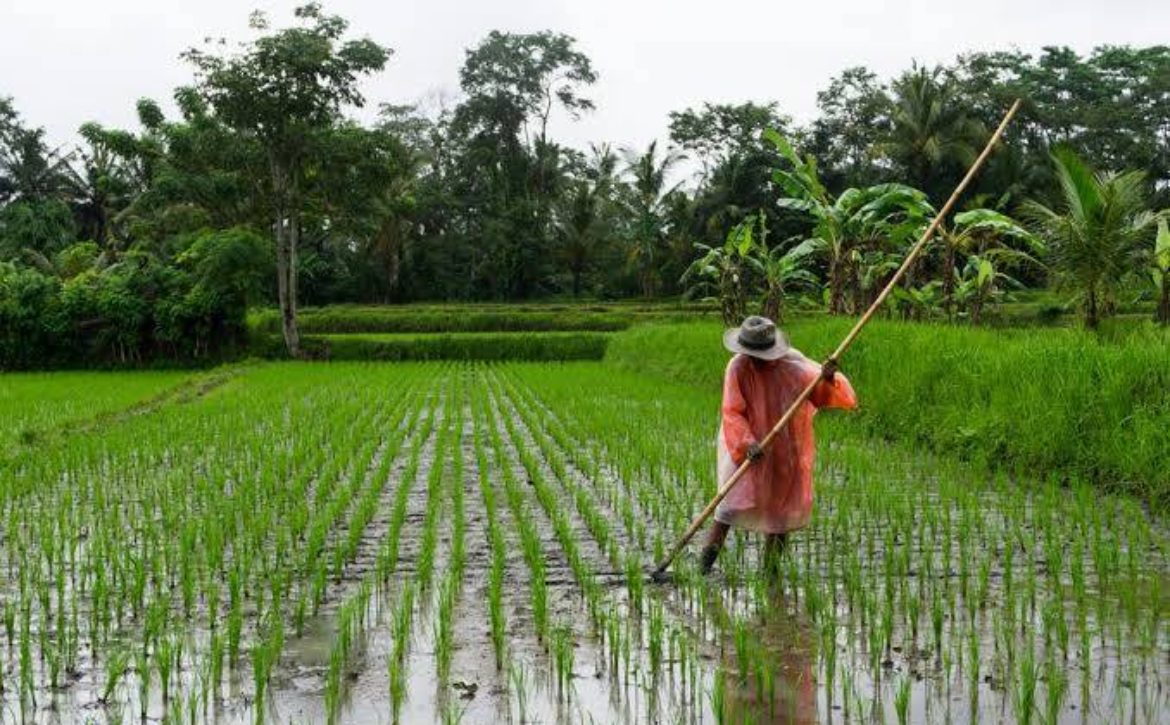
‘Milestone’: PH grants biosafety permit to GMO ‘Golden Rice’ for commercial production
Good news for all Filipino farmers and rice consumers!
Nutrient-enriched, and genetically modified Golden Rice “is now cleared for commercial propagation” following the issuance of a biosafety permit on July 21, 2021.
(Photo from PhilRice)
In separate statements, the Philippine Rice Research Institute (PhilRice) and the International Rice Research Institute (IRRI) announced on Friday, July 23, the biosafety approval of Golden Rice which will benefit both the Filipino farmers and rice consumers.
“This biosafety approval of Golden Rice is the first authorization for commercial propagation of a genetically engineered rice in South and Southeast Asia,” the PhilRice said in a statement.
PhilRice chief Dr. John C. de Leon said with the issuance of permit, “Golden Rice can now be planted for commercial production as per the terms and conditions specified by the DA- Bureau of Plant Industry (DA-BPI).”
But he said Golden Rice will still have to secure “varietal registration” which is under the helm of the National Seed Industry Council (NSIC).
NSIC approves the registration of varieties based on consistent good agronomic field performance, de Leon explained.
“As always, we are committed to ensuring the highest quality of seed for farmers and a safe and nutritious food supply for all Filipinos,” he said, citing that Golden Rice development follows the standard process of rice breeding, which usually takes 10-12 years before a variety reaches the consumers.
He said a comprehensive quality assurance and stewardship program is set to be implemented covering all steps in the chain from seed production, to post-harvest processing, to marketing.
Under the permit issued on July 21, it was noted that Golden Rice has “undergone satisfactory biosafety assessment pursuant to Department of Science and Technology, Department of Agriculture, Department of Environment and Natural Resources, Department of Health, and Department of Interior and Local Government Joint Department Circular No.1, Series of 2016”.
Milestone
The IRRI described as “milestone” the Philippines’ approval of Golden Rice’s commercial propagation permit.
“Filipino farmers will become the first in the world to be able to cultivate a variety of rice enriched with nutrients to help reduce childhood malnutrition, after receiving the green light from regulators,” it said in a statement.
(MANILA BULLETIN FILE PHOTO)
Golden Rice was developed by the (DA-PhilRice) in partnership with the IRRI under the Healthier Rice Project “to contain additional levels of beta-carotene, which the body converts into vitamin A.”
“This milestone puts the Philippines at the global forefront in leveraging agriculture research to address the issues of malnutrition and related health impacts in a safe and sustainable way” IRRI Director General Dr. Jean Balié said.
Fight against Vitamin A deficiency among children
The IRRI expressed hope that the Philippines’ approval of Golden Rice’s commercial propagation will help address vitamin A deficiency (VAD) among children, which causes childhood blindness and weakened immune system.
Golden Rice is genetically engineered to provide up to 50 per cent of the estimated average requirement (EAR) for vitamin A of young children, the age group most susceptible to VAD in the Philippines, it noted.
“The regulatory success of Golden Rice demonstrates the research leadership of DA-PhilRice and the robustness of the Philippine biosafety regulatory system,” Balié said.
The IRRI noted that Golden Rice has already secured food safety approvals from regulators in Australia, New Zealand, Canada, and the United States, “but the Philippines is the first country to approve commercial cultivation.”
This new variety “is also currently undergoing final regulatory review in Bangladesh,” it said.
The Institute cited the efforts of DA-PhilRice to work closely with local partners “to identify market- and program-based approaches for bringing Golden Rice first to selected communities with a high prevalence of VAD and other associated micronutrient deficiencies.”
“It is also increasing the volume of available seed and other remaining activities necessary for moving Golden Rice into farmers’ fields,” it added.
De Leon, executive director of DA-PhilRice, said Golden Rice has been developed for humanitarian purposes to help curb VAD.
(MANILA BULLETIN FILE PHOTO)
Citing studies, the PhilRice said a one-cup portion of cooked Golden Rice contains enough beta-carotene to meet up to 30 to 50 percent of the estimated average requirement of vitamin A for children aged 6 months to 5 years, the group most at risk of vitamin A insufficiency in the Philippines.
It laments that currently, only two out of 10 Filipino households meet the estimated average requirement (EAR) for vitamin A intake in their daily diet.
“With its potential to provide a significant amount of vitamin A in the diet, Golden Rice can be an effective complementary approach to achieving the Department of Agriculture’s vision of availability, affordability, and accessibility of quality and nutritious rice for all Filipinos at all times,” the PhilRice said.
Golden Rice as product of cross-cutting collaborative work
IRRI Director for Research Dr. Ajay Kohli said rigorous research and regulatory review has demonstrated that Golden Rice is as safe as ordinary rice with the added benefit of beta-carotene in its grains.
“This milestone approval is the product of cross-cutting collaborative work in the agriculture and nutrition sciences, the public sector, and local farming communities, who are all looking forward to seeing Golden Rice reach the tables of those who need it the most,” he said.
He said the last-mile delivery of Golden Rice is just one component of a food systems approach to nutrition, which also includes community outreach and extension services, and improved market access for farmers.
“By improving rice varieties that address farmer, consumer, and environment needs, precision breeding innovations such as genetic engineering and gene editing can open up pathways for more inclusive participation in the food system.”
It was in the late 1980s that Golden Rice was first conceived by Professors Ingo Potrykus and Peter Beyer and IRRI served as the first licensee of their work in 2001.
Read More


